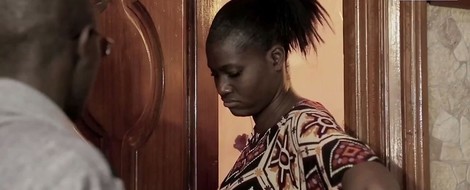Your podcast discovery platform
Curious minds select the most fascinating podcasts from around the world. Discover hand-piqd audio recommendations on your favorite topics.

piqer for: Global finds
Ciku Kimeria is a Kenyan author "Of goats and poisoned oranges" - (https://www.amazon.com/goats-poisoned-oranges-Ciku-Kimeria-ebook/dp/B00HBBWPI6), development consultant, adventurer and travel blogger (www.thekenyanexplorer.com). She writes both fiction and non-fiction focusing on African stories that need telling. She has worked on diverse pieces for various international and local publications including Quartz, Ozy, The East African etc. She has travelled to 45 countries – 16 of them in Africa. 153 countries to go and 63 territories!
"Of goats and poisoned oranges" has been extremely well received in Kenya and beyond. It tells the story of a Kenyan middle aged power couple and their complicated marriage. The novel explores issues of greed, revenge, betrayal and murder. It runs from the 1960s to 2013. It has been described as “Wicked, funny, poignant, wacky, human, a big ball of fun and danger”, “A unique and captivating book”, “Fun and intriguing”, “Impossible to put down once you start reading.”
She recently moved to Dakar, Senegal from Kenya to work on her second novel. She also works at as the Africa Communication Manager at a leading global strategy consulting firm.
She holds a B.S. in Management Science from MIT with minors in Urban Planning and International development studies.
Local Language Cinema In Senegal Offers Hope For The Movie Industry
The country that gave the world Ousmane Sembène, the godfather of African cinema, who was at the height of his fame in the 1960s, 70s and 80s, is now struggling to revive its movie industry. I recall watching greats such as Le noir de, Xala and his 2004 Cannes award-winning film Moolaade with wonder. As a Kenyan who moved to Senegal in 2016, the fact that I was only discovering this African great that year was a reminder of how Anglophone and Francophone countries are separated even today: by language and education systems that make it difficult to transcend certain barriers.
The work of Ousmane Sembène and others in the 1960s and 1970s marked the height of Senegalese Cinema. However, eleven years after Sembène’s death, for most Senegalese, cinema hardly exists. In recent decades, Senegalese cinematic productions have decreased in number and in Dakar, there is a startling lack of movie theaters. Once home to up to eighty cinemas and screening rooms, in 2016 there were only four cinemas left struggling to survive. The new Complexe Cinématographique Ousmane Sembène has been built as an attempt to remedy this problem.
I recently watched Black Panther in the newly opened Complexe Cinématographique Ousmane Sembène. It was a great experience. What I do hope will happen in future is that this cinema and others will help me discover more Senegalese and African films. What the movie industry lacks is the type of financial support and government backing that can help it flourish.
In a recent interview with Dinama Nekh, producer of a very popular Senegalese series, the challenges in the industry are highlighted.
Niang exclaimed, “Le cinéma Sénégalais n’existe pas” (“Senegalese cinema does not exist”)... I could write films like all the young people and put them on commissions like la Francophonie and wait for funding, but I prefer to make popular cinema… We need a cinema made by the Senegalese and produced by the Senegalese.
